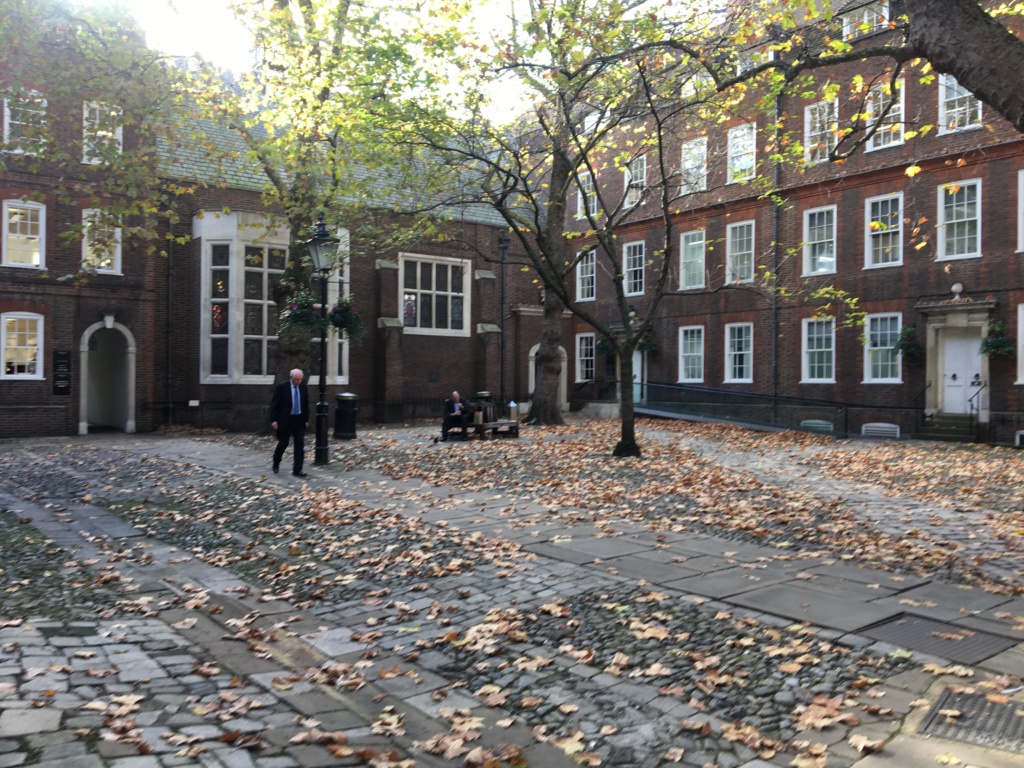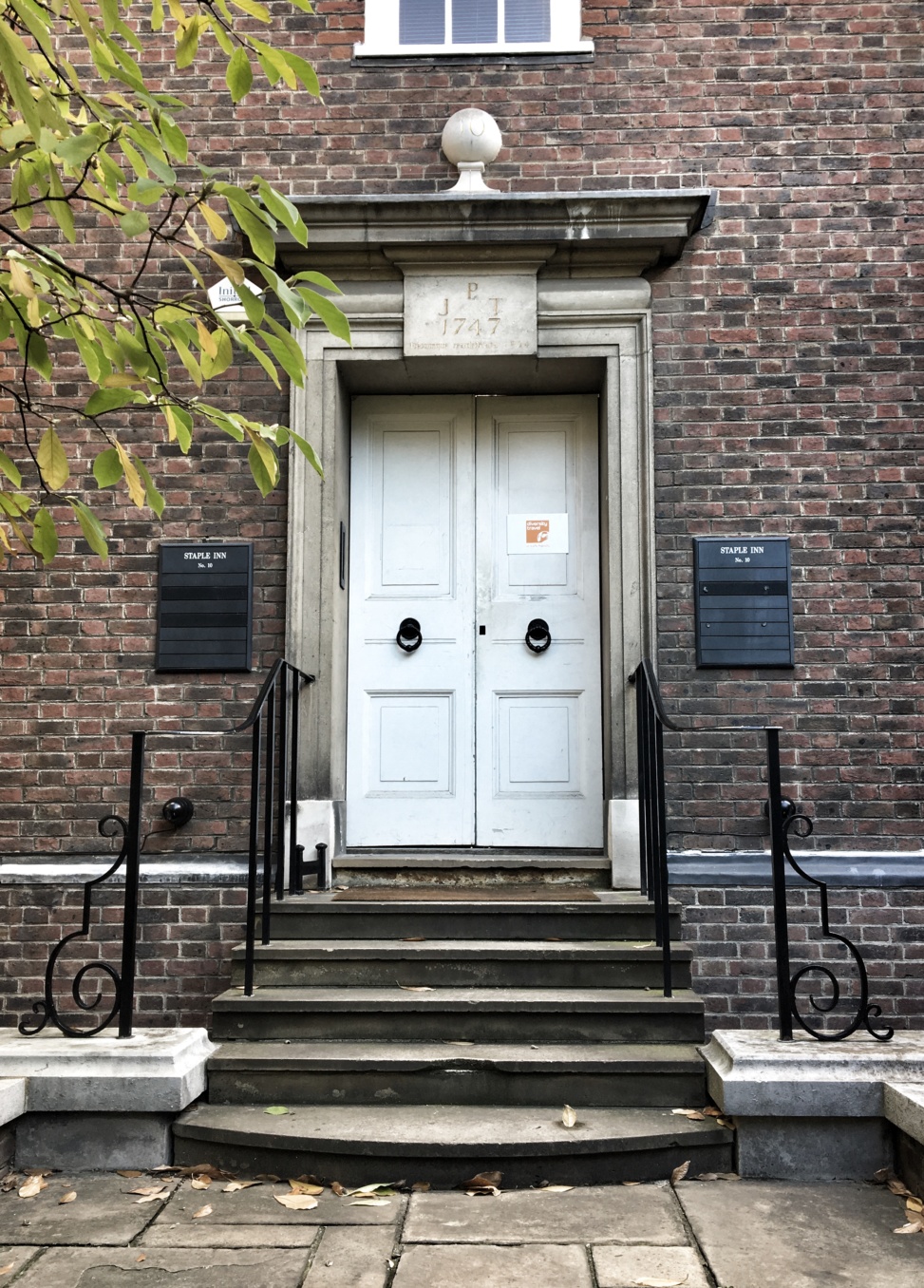I love it when fictional London collides with a factual version of the city.
After visiting Staples Inn a few month’s ago,I recently found this passage in The Mystery of Edwin Drood by Charles Dickens, which he wrote in 1870. He describes Staple Inn as a place, “…where certain gabled houses some centuries of age still stand looking on the public way…is a little nook…called Staple Inn. It is one of those nooks, the turning into which, out of the clashing street, imparts to the relieved pedestrian the sensation of having put cotton in his ears and velvet soles on his boots.”
The medieval gabled houses remain, although now the black tudor beams have been restored since Dickens’ days, when they were plastered over and the plaster was rendered a beige colour. Staples Inn remains behind it and is still a calm, quiet spot away from the hurly burly of the busy London streets nearby.
There’s a door to one of the houses in the first courtyard of Staple’s Inn with the inscription PJT 1747. It was where Mr Grewgious lived in the novel. Dickens described it in the book:
“Neither wind nor sun, however, favoured Staple Inn one December afternoon towards six o’clock, when it was filled with fog, and candles shed murky and blurred rays through the windows of all its then-occupied sets of chambers; notably from a set of chambers in a corner house in the little inner quadrangle, presenting in black and white over its ugly portal the mysterious inscription: P J T 1747
In which set of chambers, never having troubled his head about the inscription, unless to bethink himself at odd times on glancing up at it, that haply it might mean Perhaps John Thomas, or Perhaps Joe Tyler, sat Mr. Grewgious writing by his fire.”
It apparently stands for President James Taylor of the Society of Antients of Staples Inn in 1747. The antients were the senior figures who ran the London legal Inns. James Taylor may have been the man whose initials were over the door but he has turned out to be not even its second most famous resident. As well as the fictional Mr Grewgious, the house was also lived in by Dr Johnson, the famous wit who said “When a man is tired of London, he is tired of life” and who compiled the first great English dictionary also lived here for a spell in the late 1750’s.

